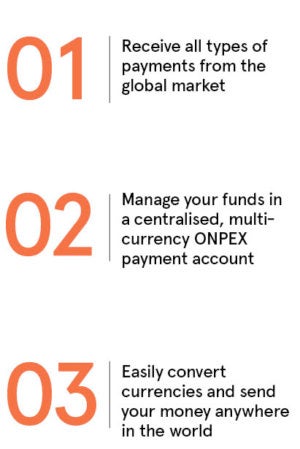
Payments have evolved in recent years as companies have attempted to adapt to the behaviour of consumers on ecommerce platforms. This is often geographically influenced, such as US consumers preferring credit card transactions while Germans favour paying on open invoice or direct debits.
Meanwhile, decentralised blockchain networks and their ability to enable smart contracts, are now on the verge of drastically shaking up the financial world. These distributed ledger technologies are still in the concept phase, but will drive the evolution of payments.
This changing technical environment is running parallel to an increasingly complex compliance landscape, driven by new regulations such as PSD2, GDPR and AML4. Also, AML5 and AML6 are just around the corner.There are a huge number of hurdles to overcome to provide the payment solutions that consumers want.
Automation is the key to solving these complexities. For example, an ecommerce marketplace might spend up to 100 hours a week managing its merchants’ cash settlements. At the end of the month, this accumulates to spending thousands of pounds on internal accounting resources. Having a fully automated payment system that receives, splits, reconciles and settles these incoming payments would not only accelerate cash conversion and increase customer satisfaction, but would also save costs.
ONPEX, a leading provider of multi-currency IBAN solutions, has launched a cloud-based, Banking-as-a-Service (BaaS) platform that enables businesses to build, configure and manage their own financial services. The platform offers multiple tools such as IBAN issuing, Single Euro Payments Area (SEPA) and cross-border payments, as well as multi-currency management.
Traditional banks and other payment service providers (PSPs) often lack API-based IBAN accounts, as well as cash and payment management capabilities. These features are vital in ensuring businesses can scale and grow effectively. Payment networks are highly complex, which is why it is so important to give regulated companies, as well as non-regulated firms that want to automate their payment flows, simple API toolkits where they can connect their existing software applications and business processes.

If a company or another financial institution wants to open or close accounts, transfer money or exchange currency, everything can be fully automated through APIs, rather than using a clunky proprietary solution. The automation provides a seamless integration into business processes, but also means an interoperability with other providers. PSD2 requirements, open banking, interoperability, and connectivity between banks and service providers can all be guaranteed through APIs.
By offering an API-based solution, ONPEX is positioned at the forefront of open banking. Even the ONPEX administration portal is based on the underlying APIs that all their clients enjoy. ONPEX deals with all of the complexities on behalf of their clients, who only need to send a request to their APIs and everything is taken care of for them. This means the implementation of such solutions is much easier for them and drastically reduces their costs.
On the other side, ONPEX is directly connected to the clearing systems, to the banks and corresponding network, meaning ONPEX participates on the same level as other banks. By automating the processes, there is less manual intervention and faster processing times, so there are further cost-savings and better performance when processing local and international transfers.
Cloud-based infrastructure contributes heavily to the efficiencies involved in enabling sophisticated payment solutions, not to mention in enabling the scalable as-a-service model. Previously, when creating solutions on-premise, you would require several cost and resource-intensive layers, including a datacentre, facility management, hardware administration and software management, and a DevOps application, before you even thought about adding your financial service application. Building these layers underneath made it highly complex and expensive.
Now, using a cloud-based infrastructure immediately reduces the costs involved and improves scalability, so from a transaction processing capacity, the sky is the limit. ONPEX has reduced its costs tremendously, so they can provide the service at a better price to their clients compared to old legacy core banking systems and infrastructure.
The ONPEX platform is agnostic to the value exchanged and the method of transfer
The ONPEX platform not only completely provides banking and payments as a service, covering the full software technology and the financial service, but it also ensures everything is taking place in a regulatory compliant environment. If the client is a marketplace, for example, they can focus entirely on the needs of their sellers. ONPEX removes the burden of regulatory compliance from them so their clients can dedicate all their energy and resources to growing their business.
The ONPEX software also supports organisations in performing operations such as client and account management, SWIFT and SEPA transfers, foreign exchange, acquiring, card and APM collecting, settlements, reconciliation, onboarding, billing and invoicing. This supports even the smallest of businesses to scale through flexible solutions.
ONPEX is a leading hub for the exchange of value for the digital economy. Currently they are dealing with payments and banking but, with the emergence of cryptocurrencies and smart contracts, it certainly does not stop there. This new generation of payments will require a third party to ensure a trusted payment flow.
The ONPEX platform is agnostic to the value exchanged and the method of transfer. Companies are enabled to implement seamlessly the transfer and tracking of funds or other values in their solutions, whether it is a marketplace, logistics company, trading firm or financial institution.
For more information please visit onpex.com






